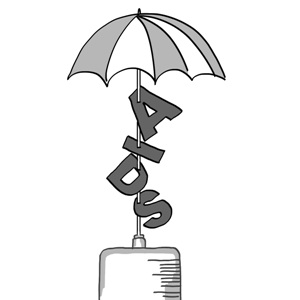
Shanghai municipal government's official Sina Weibo account announced that every child with a Shanghai hukou (permanent residence permit) diagnosed with HIV or AIDS is entitled to a monthly subsidy of 1,400 yuan ($228.29), backdated to January 2012.
It added that the personal details of recipients of the money won't be released to the public, and access to the information will be restricted in order to protect the children's privacy. The information was released on June 3, two days after International Children's Day.
The sum of 1,400 yuan a month is almost equivalent to the city's standard for the lowest acceptable monthly salary last year, which means it should be enough to guarantee the basic necessities of daily life. It's good news for the families of the children.
However, people are divided over the policy to not release the details of the beneficiaries.
On one side, the argument is that it is necessary to protect the privacy of the patients to prevent them being discriminated against by others. The AIDS patients and HIV carriers deserve a happy life and society should pay special attention to them.
The other side expresses two major concerns. The lack of information transparency and the subsequent lack of supervision could lead to a misappropriation of these funds, meaning they never reach the children that need them. Others are concerned about the health hazards posed towards other people, especially other children who they are in daily close contact with, since the fatal disease is transmissible. This side claims that these children's privacy should not be protected at the cost of endangering other children.
We have to admit that both sides are rational. So finding how to keep a balance between the two is a challenge for both local authorities and the public.
The corruption issue in my opinion is the least to be worried about since Shanghai is always a model in effective administration and is never infamous for similar misbehaviors compared with its peers in the country.
According to the WHO website, HIV can be transmitted via the exchange of a variety of body fluids from infected individuals, such as blood, breast milk, semen and vaginal secretions. Individuals cannot become infected through ordinary day-to-day contact such as kissing, hugging, shaking hands, or sharing personal objects, food or water.
The basic knowledge of the features of this disease should be taught to children from an early age so that young kids can have an awareness of it and if something happens, there will be a better chance that they will act properly. China has already made progress in the campaign to educate the public about the disease. Peng Liyuan, wife of Chinese President Xi Jinping, was appointed Goodwill Ambassador for Tuberculosis (TB) and HIV/AIDS by the WHO. Many other dignitaries and celebrities have joined hands in spreading knowledge to help prevent the disease and help patients.
Professional medical staff or volunteers should instruct AIDS patients and HIV carriers about how to minimize the risk they will infect others. They should be aware of the fact that they are the movable virus carriers, which under certain circumstances, could cause great trouble to others and the whole social stability. In this way, they can protect themselves and others.
We have heard of extreme cases in which some adult AIDS patients still have sex with others without taking any protective measures, and not telling their sexual partners about their condition. The patient knew his situation clearly but still maliciously spread the virus. We have also heard that some robbers used supposedly infected needles to threaten others when demanding money. These cases caused great public panic and disturbed the social order, which led to the calls for information about sufferers of the disease to be made public.
According to WHO guidelines, there are five key components - the "5 Cs" - that must be respected and adhered to by all HIV Testing and Counseling (HTC) services. These components are: consent, confidentiality, counseling, correct test results and connection/linkage to prevention, care and treatment. Testing services must be confidential, meaning that the content of discussions between the person tested and the healthcare worker, testing provider, or counselor, as well as the test results, will not be disclosed to anyone else without the consent of the person tested. China is of no exception to the practice.
"Getting to Zero: Zero new HIV infections; Zero deaths from AIDS-related illness; Zero discrimination" was the theme of World AIDS Day 2012. While this is an admirable target the WHO has set, the road to realize it is still very long.
People, including children, should always be aware about the hazards of HIV. As far as children are concerned, parents and teachers should remind them that, where blood and discarded needles are involved, they'd better keep away.
The author is the managing editor of Global Times Metro Shanghai. fengyu@globaltimes.com.cn

